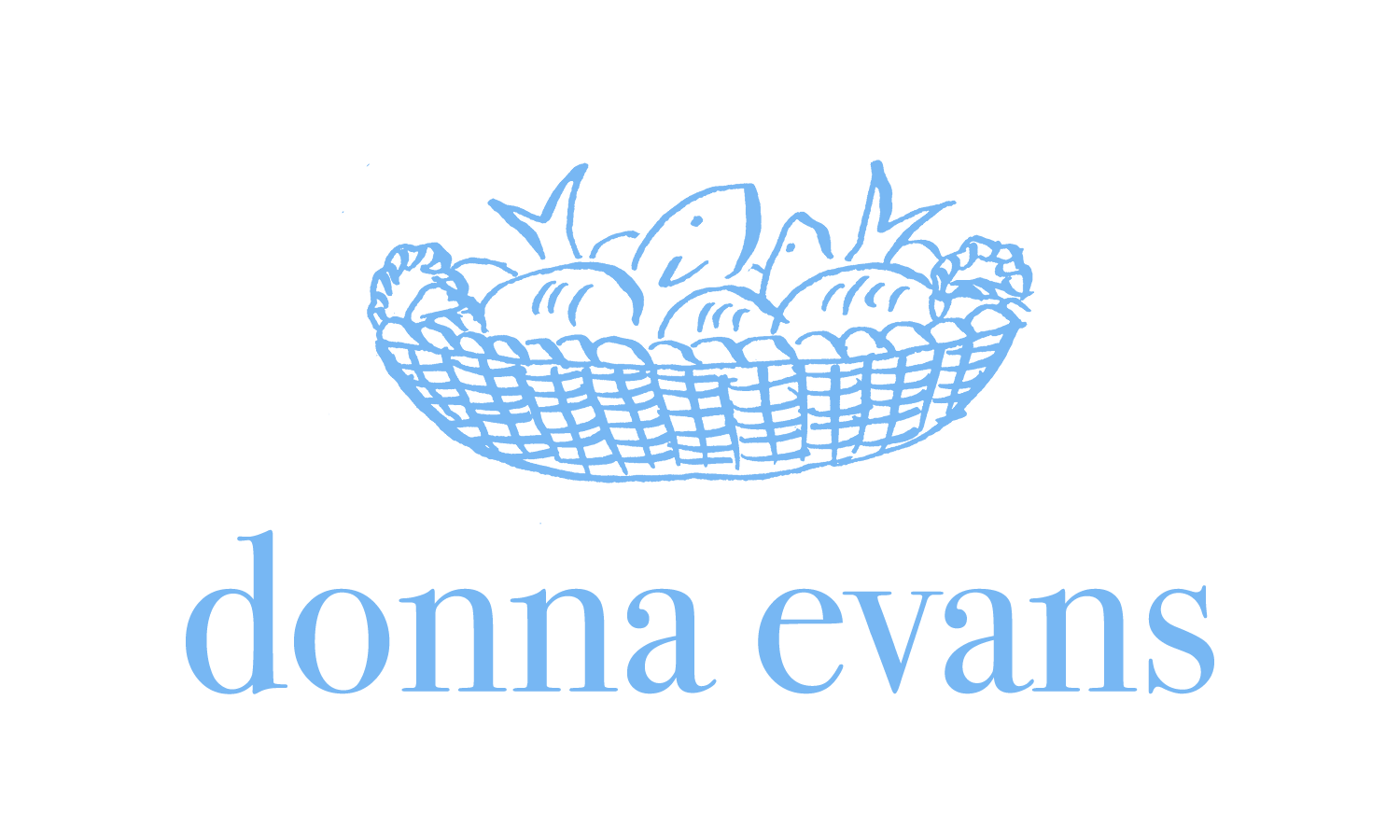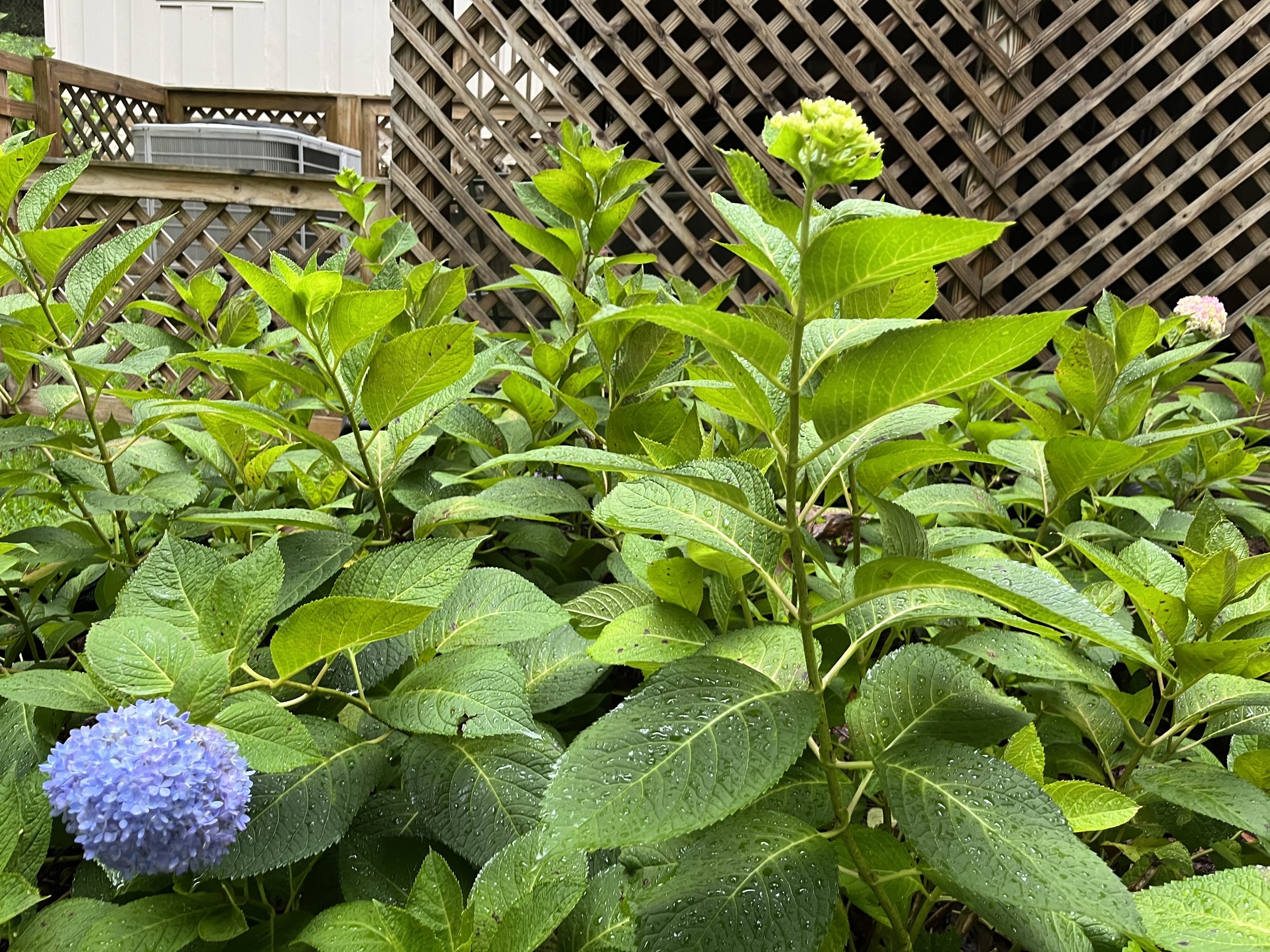Bountiful or Barren?
“This is for my Father’s glory, that you bear much fruit.” John 15:8 (NIV)
My life-long love affair with hydrangeas began when I was only five years old. I loved to walk down the street to my Mam-Maw’s house and see her big “snowball” bushes that guarded the entrance to her screened front porch. I was too young to know that the large bright blue flowers were hydrangeas, but the blooms looked like blue snowballs to me, so that’s what I called them.
Our own personal journey with hydrangeas began about twenty-five years ago when Bruce and I had two kids in college and our finances were really stretched thin. I asked Bruce for "a" single hydrangea plant as my Mother's Day gift. Bruce went to the garden shop, bought 6 hydrangea plants, and I almost had a heart attack! Of course, nothing bloomed that first year. A couple of the plants had to be moved the next year when we realized that they weren't getting enough sunlight. Eventually, however, my hydrangeas grew and bore beautiful blooms that brought us much joy. Over the years we gradually introduced some different varieties of hydrangeas: French Lace, Nikko, Oak Leaf, and Limelights to name a few. But my Endless Summer hydrangeas continue to be my favorite. Each spring I anxiously anticipate our hydrangea harvest much as a child looks forward to Christmas.
In December 2022, an extreme artic cold front moved through our region for three days causing record low temperatures. Few people recognized it then, but the extreme cold also caused significant damage to many shrubs, trees, and plants that typically can withstand winter in the Southeast. Bruce and I realized in the early spring that some of our heartiest shrubs were dying from the prolonged exposure to the record cold. We wondered how our beloved hydrangeas would be affected.
Thankfully our Oak Leaf hydrangea buds appeared in early May, and we breathed a sigh of relief. We waited expectantly for the Endless Summer and others to bloom, but only one small French Lace bush produced a single bloom. 4-year-old Mary Clayton was thrilled with the one bloom. I continued to grieve our losses even as I thanked God for the one.
This year, however, turned out to be a bumper year for the Limelight hydrangeas. They reached their peak in July and have been stunning throughout our neighborhoods. For the most part, our Endless Summer hydrangeas have been barren. In early August we finally saw just a few buds which eventually became blooms. These flowers are not only fewer in number, but also in size. And while I’m grateful for the few, I still find myself vacillating between grief and gratitude.
Hydrangeas aren’t here just to take up space in my yard. They are supposed to bear fruit and when they do, they bring me much joy. Jesus also put a high priority on the importance of fruit bearing. Just a few days before going to the cross, Jesus cleansed the temple by overturning the merchants and money changers’ tables. (Matthew 21:12-17) He insisted that his house is to be called a “house of prayer” and worship. The next day Jesus walked toward Jerusalem and saw a fig tree with full leaves. Hungry, he expected to find figs on a fig tree with full leaves. Instead, the tree is barren. He curses the fruitless fig tree, and it Immediately withers. This is the only negative miracle of Jesus’ ministry. He cleansed the temple because of the corruption he found there. He cursed the fig tree because of what he didn’t find: fruit! In the Old Testament Israel is compared to a fig tree. (Jeremiah 24) Without fruit, Israel’s relationship with God is all show, without reality, and only useless empty forms. The purpose of Jesus’ miracle is to teach us that any reality of a relationship with God is better than all the forms without any fruit.
What kind of fruit is Christ looking for? Here is just a few examples:
The fruit of repentance (Luke 3:8)
The fruit of the Spirit (Galatians 5:22-23)
The fruit of goodness, righteousness, and truth (Ephesians 5:9, Philippians 1:11)
Bountiful good fruit (Matthew 7:17, 20)
Fruitful labor (Philippians 1:22)
Good works (Colossians 1:10, Ephesians 2:10)
A sacrifice of praise (Hebrews 13:15)
What kind of fruit are we bearing for God’s glory? Are we bountiful or barren? “This is to my Father’s glory, that you bear much fruit, showing yourselves to be my disciples.” (John 15:8)






